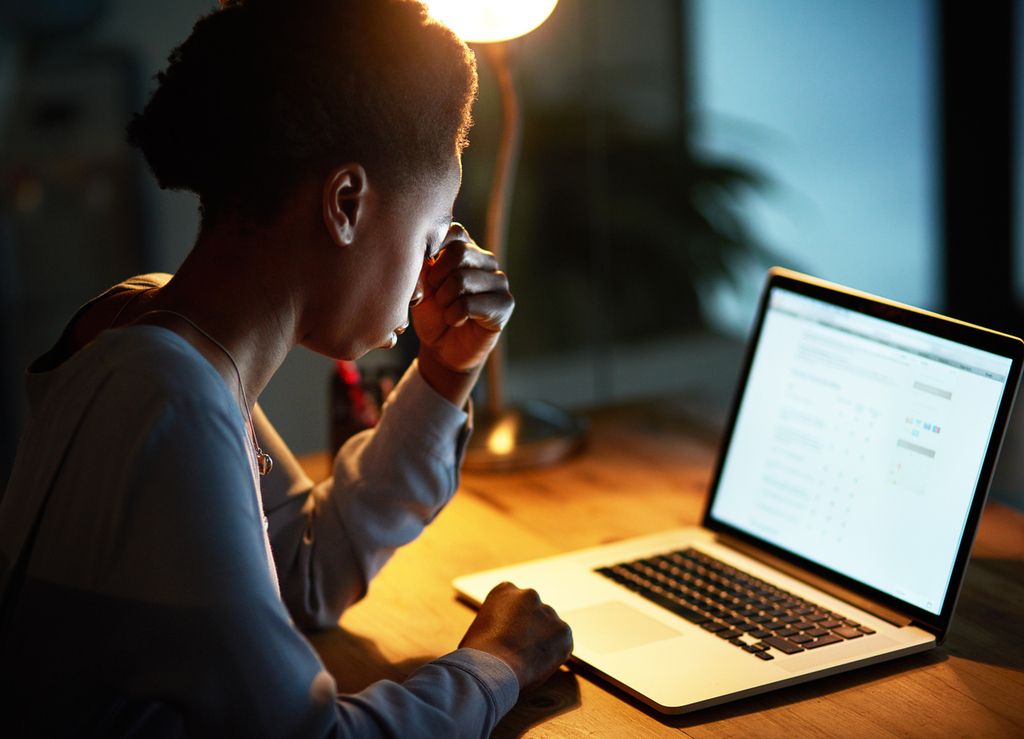For Call-Out Culture to Matter, We Must Be About the Business of Healing

Recently, I have come across several Facebook posts, tweets, and op-eds addressing call-out culture and disposability in movement work. For some, “calling out” a person for causing harm and being overly problematic is also detrimental because call-outs can take place publicly and become heated, which could be unhealthy. For others, “calling out” harm that is inflicted upon them is warranted, especially harm that is rooted in systemic oppression, as it can lead to distress and trauma. People who support “calling out” might also argue that it is unfair to tell someone how to address and process their pain. It can also be viewed as a form of tone policing.
I was once a big proponent of “calling out” the abusive and problematic statements/practices of a person (or group), especially if the practices occurred publicly. Growing up, my mama taught me to never let anyone “make a fool out of me,” so I’ve often taken the approach that if someone hurts/embarrasses me (especially publicly), then I am going to address it in the same manner (i.e. engage in a public dragging). While I am aware of the old adages “you can’t fight fire with fire” and “two wrongs don’t make a right,” there was always a sense of relief (and sometimes joy) that accompanied going off about a harmful comment and/or action that was directed toward me. And after the call out, I quickly removed the culprit from my life. If it was someone from the movement who I knew, I would abruptly cease communication. If it was just a person from the comments section, I would simply block them.
I also utilized this approach in my personal life, even before becoming involved in social justice work. If a friend or romantic partner did or said something that was painful, I would address it (publicly if necessary) and then remove them from my life. This was deeply rooted in the belief that if someone has harmed you, then that person does not need to hold space in your life. Over a month ago, I relied on this principle to remove a person from my life because of some actions that led to pain and embarrassment for me. I even provided a deadline for when the removal would take place. However, when I tried to do so, the individual said something that startled me; they shared how I am adamant about being compassionate and not wanting to be disposed of by others, but yet I was trying to dispose, which was problematic (and hypocritical). Initially after receiving this feedback, I became defensive. I felt as if the remark was a deflection and an attempt to not take accountability for the harm that had been caused. Upon further reflection and processing, I realized that I was being hypocritical, and my deadline approach was damaging.
This situation was a gateway for confronting a harsh reality; while I try hard to navigate the world without causing harm, I have in fact harmed others. I have engaged in abusive and problematic practices that have probably been shameful, hurtful, and embarrassing for some folks. Nayyirah Waheed states in one of her poems that “we have all hurt someone tremendously. whether by intent or accident.” I have come to realize that I thought because I am, for the most part, a caring and considerate person, I was exempt from this. But that is not the case. We have all harmed and inflicted pain. And this is what makes call-out culture and disposing of others complicated. Capitalism, racism, sexism, homophobia, transphobia, and ableism have taught us that certain individuals are disposable. But we are not. Even though it can be difficult to give grace and be patient in some situations, I am now reminding myself that I have made mistakes. I have wounded.
I am not suggesting that we completely do away with publicly addressing harm or pain. I do believe, especially for historically marginalized groups, that space should be created for expressing and processing an array of emotions as a result of being harmed. I also believe that there are times when people need to part ways due to toxicity, a constant denial of one’s humanity, and a lack of contribution to mutual growth.
I do hope that we consider the nuances and think more deeply about the historical pain/trauma that we, as marginalized folks, carry (that we have both inherited and experienced), how we can inflict that pain on each other, and our healing process.
In the past, I thought that I was healing with my approach and practices, but I was not. My recent situation has helped me to recognize that part of the healing process involves acknowledging and addressing how I, too, have harmed. And I don’t want to be disposed of for my shortcomings.
Briana Perry is a Black feminist born, raised, and currently situated in the South. She is passionate about reproductive justice, storytelling, and investing in public schools.
LuckyClub Casino Site Review & Rating - LuckyClub
ReplyDeleteLuckyClub is one of the fastest growing luckyclub.live gambling websites. They are constantly developing new casino games, while keeping a healthy balance in terms of Minimum Deposit: C$10Minimum Bet: 50FSMinimum Bonus: C$10